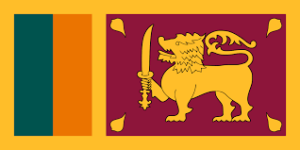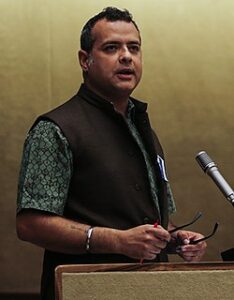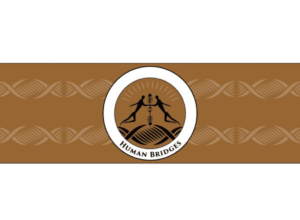Cities Made Differently: Try Imagining Another Urban Existence
 11-22-2024 ~ We know from history that there are many ways we can live together—let’s explore the idea.
11-22-2024 ~ We know from history that there are many ways we can live together—let’s explore the idea.
In thousands of ways, we are taught to accept the world we live in as the only possible one, but thousands of other ways of organizing homes, cities, schools, societies, economies, and cosmologies have existed and could exist.
We started a project called Made Differently: designed to play with the possibility and to overcome the suspicion—instilled in us every day—that life is limited, miserable, and boring.
Our first focus is Cities Made Differently, exploring different ways of living together. Read and imagine four different kinds of cities taken from our book which are listed below, and continue your exploration, downloadable at a4kids.org, for drawing and dreaming.
City of Greed
What if you had to live in a city whose citizens must pay not only for housing and health care but also for the air they breathe?
The dystopian novel The Air Merchant takes place in a secret underground factory city. Mr. Bailey, the factory owner, condenses air from the atmosphere and sells it to his fellow citizens for a profit. Eventually, the Earth’s atmosphere thins, creating a catastrophic shortage of breathable air. With the price of air increasing, fewer and fewer humans can afford to keep breathing. Read more
COP29 Ignores Militarism, Putting Meaningful Climate Deal Out Of Reach
 11-22-2024 ~ Leaders of the world’s top polluting nations skipped COP29, which also failed to address how militarism fuels emissions.
11-22-2024 ~ Leaders of the world’s top polluting nations skipped COP29, which also failed to address how militarism fuels emissions.
The 2024 UN climate change conference, COP29, held in Baku, Azerbaijan, is now nearing its end and reports are that talks are deadlocked. The two biggest elephants in the room are militarism and climate financing.
Wars generate more carbon emissions than many countries, while the U.S. military is the single largest institutional source of greenhouse gas emissions, according to Brown University’s Costs of War Project. The wars in Ukraine and Gaza have resulted not only in the deaths of hundreds of thousands, but have caused catastrophic damage to the environment and paved the way to hundreds of millions of tons of carbon dioxide (CO2) into the atmosphere. For example, it’s estimated that the first two years of Russia’s war on Ukraine will have generated 175 million metric tonnes of carbon dioxide. This is more than the total emissions generated individually by many countries, including the Netherlands, Venezuela and Kuwait.
Meanwhile, Gaza’s future habitability is very much in doubt. In just the first six weeks of the assault, Israel dropped a staggering 29,000 bombs on Gaza, with the majority of the bombs being 2,000 pounds and supplied to Israel from the U.S. Emissions from just the first 120 days of Israel’s war on Gaza (October 2023-February 2024) exceeded the annual emissions of 26 countries and territories, according to a study by an international team of researchers. When the war infrastructure (built primarily by Israel but also including that built by Hamas) is taken into account, the total emissions increase to more than 36 countries and territories, while the emissions associated with the rebuilding of Gaza are “projected to be higher than the annual emissions of over 135 countries,” according to the same study. Read more
Sri Lanka’s National People’s Power Sweeps General Election
 11-17-2024 ~ On October 15, data from the Election Commission of Sri Lanka showed that the National People’s Power (NPP) coalition scored a decisive victory in Sri Lanka’s first general election since defaulting on its external debt.
11-17-2024 ~ On October 15, data from the Election Commission of Sri Lanka showed that the National People’s Power (NPP) coalition scored a decisive victory in Sri Lanka’s first general election since defaulting on its external debt.
With 61.56 percent of the popular vote, the NPP won 159 seats in Parliament. This gave President Anura Kumara Dissanayake (AKD) a supermajority in parliament and the power to make constitutional amendments.
The NPP won a majority of the popular vote in 21 out of 22 electoral districts in the country. In the southern district of Hambantota, a traditionally left-wing Sinhala nationalist constituency that was the stronghold of the Rajapaksa family, the NPP secured 66.38 percent of the vote.
In the central Nuwaraeliya district, where many of the voters are Tamil-speaking workers in tea estates, the NPP secured a 41.57 percent plurality of the vote. In the northern Jaffna district, a stronghold of conservative Tamil nationalist parties, the NPP secured a plurality, with 24.85 percent of the popular vote.
This is a significant turnaround for the NPP, as during the presidential election, AKD polled poorly in both the north and in the central tea estate regions.
These developments may indicate that traditional identity-based parties are undergoing a significant crisis of legitimacy, as economic grievances and bitterness toward the established political elite take center stage.
They also indicate the success of the NPP in driving a grassroots campaign that emphasized national unity, or in their words, “a national renaissance.” Read more
U.S. Recruits South Korea To Help Colonize And Militarize Space
 11-15-2024 ~ The United States is colonizing and militarizing Earth’s orbit, recruiting allies such as South Korea’s Yoon Suk Yeol administration. More specifically, the U.S. Space Force is creating a “swarm” of satellites that, when combined with AI, seeks to attain a god’s eye view across all domains of war. This proliferated warfighter space architecture (PWSA) of small low Earth orbit (LEO) satellites would allow the United States—in its Department of Defense’s words—“to sense, make sense, and act at all levels and phases of war, across all domains, and with partners, to deliver information advantage at the speed of relevance.” These actions have started an international arms race to space. In 2020, China applied to the United Nations International Telecommunication Union to launch its own LEO satellites.
11-15-2024 ~ The United States is colonizing and militarizing Earth’s orbit, recruiting allies such as South Korea’s Yoon Suk Yeol administration. More specifically, the U.S. Space Force is creating a “swarm” of satellites that, when combined with AI, seeks to attain a god’s eye view across all domains of war. This proliferated warfighter space architecture (PWSA) of small low Earth orbit (LEO) satellites would allow the United States—in its Department of Defense’s words—“to sense, make sense, and act at all levels and phases of war, across all domains, and with partners, to deliver information advantage at the speed of relevance.” These actions have started an international arms race to space. In 2020, China applied to the United Nations International Telecommunication Union to launch its own LEO satellites.
Yet, saddled with $35 trillion in debt, the United States can’t do it alone. It needs its arms industries and allies such as South Korea. This has led the Yoon administration to launch its own NewSpace program to nurture its own aerospace industry. The colonization and militarization of Earth’s orbit will generate trillions of dollars for war profiteers while impoverishing humanity and the planet.
On October 19, 2024, dozens of activists from struggles across South Korea held their first national gathering—the “National Discussion on the Space Industry And Militarization of Space”—opposing the Yoon administration’s NewSpace program due to its destructive military, economic, and environmental costs.
South Korea’s NewSpace
Held as part of Space4Peace’s annual “Keep Space for Peace Week” actions (timed to coincide with the UN’s World Space Week), the conference was held in Daejeon, one of the three locations for Yoon’s regional space cluster. Sung-hee Choi, of the People Against the Militarization of Space and Rocket Launches, explained that LEO satellites are promoted for their potential to provide universal internet access, such as SpaceX’s Starlink, with little mention of their dual military purpose. The U.S. Air Force recognized in 1996 that this dual purpose would give it the “ultimate high ground” in warfare. Read more
The Choices That Australia Makes

Vijay Prashad
11-14-2024 ~ If you go to the bluff at Kings Park in Perth, Australia, you can overlook the Swan River and enjoy a remarkable view. Across the bay, there is a phalanx of steel and glass buildings that rise to the skies. Each of these buildings carries a sign that glistens in the sharp sun: BHP, Rio Tinto, Chevron, Deloitte, and others. Kings Park no longer survives merely with the patronage of the British King, who continues to claim sovereignty over Australia. Part of it is now named Rio Tinto Kings Park, needing the corporate profits from this enormous mining company to sustain its charms. Down one of the avenues of the park there are trees set apart by a few meters, and at the base of these trees are small markers for dead soldiers from past wars; these are not graves but remembrances that are crowned by Australian flags. The park brings together the three crucial pieces of Western Australia, this province of which Perth is the capital which is the size of Western Europe: the British monarchy, the mining companies and its affiliates, and the role of the military.
Of Kings
A few days before I arrived in Canberra, an aboriginal senator, Lidia Thorpe, interrupted the celebration of King Charles III to say, “You are not my king. This is not your land.” It was a powerful demonstration against the treatment of Australia ever since the arrival of English ships to the country’s east in January 1788. In fact, the British crown does claim title to the entirety of the Australian landmass. King Charles III is head of the 56-country Commonwealth and the total land area of the Commonwealth takes up 21 percent of the world’s total land. It is quite remarkable to realize that King Charles III is nominally in charge of merely 22 percent less than Queen Victoria (1819-1901). Read more
What Are Republics, Exactly? It’s A Good Time To Learn
 11-13-2024 ~ Republican ideals have evolved over millennia, shaping governance across the globe. Modern republics continue to adapt, but face challenges in upholding their foundational principles.
11-13-2024 ~ Republican ideals have evolved over millennia, shaping governance across the globe. Modern republics continue to adapt, but face challenges in upholding their foundational principles.
The 2024 U.S. presidential election was framed as a crucial test for the nation’s political system, with ongoing concerns over oligarchy, mob rule, a breakdown of equal protection under the law, and the ultimate power of citizens to determine the fate of the nation.
Republics have suffered total collapses throughout history, and there’s no reason why the United States should be immune. The fear of that often prompts a superficial reference to the final fall of the Roman Republic or the end of Greek democracy.
But there’s a deeper history: Republics came into being far earlier in Middle Eastern and Mediterranean civilizations. And we can draw from a much wider range of examples to learn from as we try to understand the challenges and the opportunities.
A true republic is a political system without monarchy or concentrated political power in any office, branch, or individual. Elected officials represent citizens to make decisions on their behalf, with separate branches of government providing checks and balances. While many associate republics with direct democracy in our times, there’s a much wider array of power structures that developed in the formative era of republics. Read more
- Page 2 of 3
- previous page
- 1
- 2
- 3
- next page


